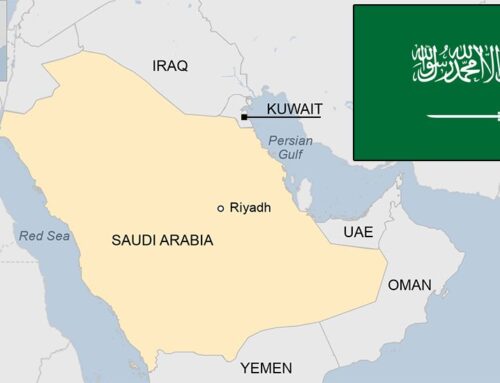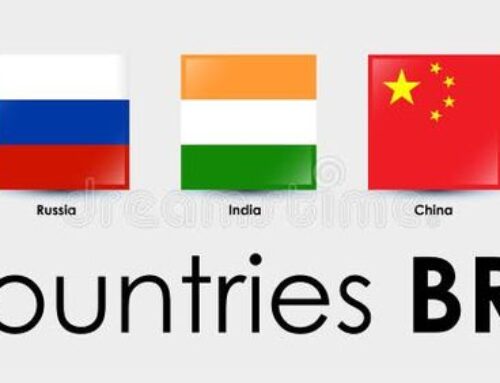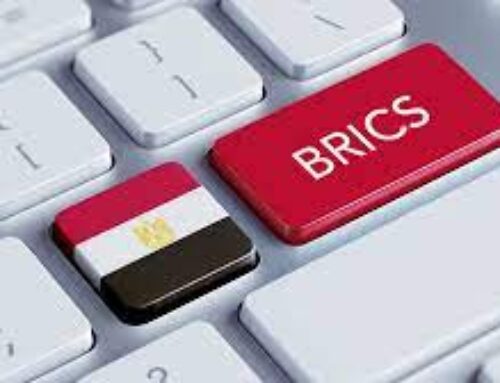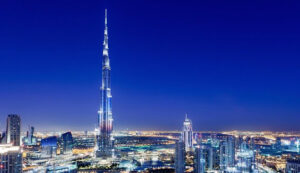
While studying 6 new entrants, I realized that Iran and Saudi Arabia get all the limelight. Argentina received some parts, and the UAE received the least news. So my curiosity made me study it further. Whatever I found is what I wrote here.
The United Arab Emirates (UAE) is a shining example of rapid transformation and development. From its humble beginnings as a collection of emirates to a modern economic and cultural hub, the UAE’s history is a fascinating journey of resilience, vision, and ambition. The United Arab Emirates (UAE) is a young country, but it has come a long way in a short time.
The UAE’s journey from the desert to the BRICS is a remarkable story of success. Since its independence in 1971, the UAE has transformed itself from a poor desert nation into a thriving economy and a global hub for trade and tourism. The UAE’s membership in the BRICS is a recognition of its economic achievements and its growing importance in the world.
The birth of the UAE
Before 1971, the United Arab Emirates (UAE) was known as the Trucial States. The Trucial States was a group of sheikhdoms spanning the Persian Gulf from the west, beyond the Straits of Hormuz. The Sheikhs and the British Government signed several truces and protective treaties between 1820 and 1892. These truces are the source of the name Trucial. Up until the British withdrew definitively in 1971, the truces were in place.
Leadership is what it takes
The UAE’s leadership has been marked by a commitment to modernization and development. Sheikh Zayed bin Sultan Al Nahyan, the founding father of the UAE and the ruler of Abu Dhabi, played a pivotal role in shaping the nation’s destiny. His emphasis on infrastructure development, education, and social welfare set the stage for the UAE’s rapid growth. Under the federal constitution, each emirate retained significant autonomy while contributing to the federal government. The UAE’s leadership model, a blend of traditional governance and modern principles, has been key to its success.
I can talk many things in length but what matters most is economy. When we talk about it, that is a big plus for this young nation.
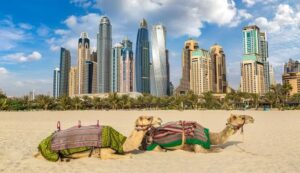
The UAE’s journey from a relatively impoverished region to one of the world’s wealthiest countries has been remarkable. This transformation was primarily driven by the discovery of vast oil reserves. The discovery of oil in the United Arab Emirates (UAE) in the 1950s and 1960s transformed the country from a poor desert nation into one of the wealthiest countries in the world. So even before UAE came into existence, the region was drilling Oil. Oil revenues have provided the UAE with the resources to invest in infrastructure, education, and other sectors of the economy.
The UAE is now one of the world’s largest producers and exporters of oil and gas. Oil and gas revenues account for about 30% of the UAE’s GDP and 85% of government revenue. The oil industry, primarily based in Abu Dhabi, became the backbone of the nation’s economy. Oil has had a profound impact on the UAE’s economy. It has led to the development of new industries, such as petrochemicals and refining. It has also created jobs and boosted the country’s standard of living.
UAE’s leaders were well aware of the need to diversify the economy to reduce dependency on oil. This led to the development of sectors such as finance, tourism, and real estate. Dubai, in particular, emerged as a global business and tourism hub, driven by ambitious projects like the Palm Jumeirah and the Burj Khalifa. Investment in education and innovation has been a key driver of the UAE’s progress. World-class universities, such as the United Arab Emirates University and the American University of Sharjah, have played a pivotal role in shaping the country’s intellectual landscape. The UAE’s commitment to research and development is evident in its support for technology and innovation parks.
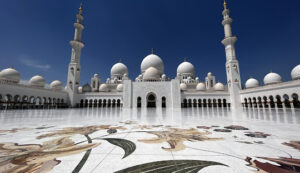
The UAE has managed to strike a balance between modernization and the preservation of its cultural heritage. The Emirati culture, deeply rooted in Islamic traditions, remains an integral part of daily life. The UAE’s leadership has promoted cultural initiatives and heritage preservation, exemplified by institutions like the Sheikh Zayed Grand Mosque in Abu Dhabi.
Dubai has transformed itself from a small fishing village into a global city in just a few decades. Dubai is now a major financial center, a hub for tourism and trade, and a home to some of the most iconic buildings in the world, such as the Burj Khalifa and the Palm Jumeirah.
Abu Dhabi, the capital of the UAE, is home to the country’s oil and gas reserves. Abu Dhabi has invested heavily in infrastructure, education, and culture in recent years. The city is now home to world-class museums, universities, and cultural institutions.
The UAE has made significant strides in improving the quality of life for its citizens and residents. Access to quality healthcare and social services has been a priority. The establishment of healthcare centers, such as Cleveland Clinic Abu Dhabi, reflects the nation’s commitment to providing world-class medical facilities.
UAE can contribute many different things towards BRICS. The UAE has a diversified economy that is based on oil and gas, tourism, and trade. The UAE is also a major financial center and a hub for regional and international investment. Plus, its location. It is situated in the right place. The UAE is located at the crossroads of Europe, Asia, and Africa. This makes it a strategically important location for trade and investment. By using its inflows from the Oil business, The UAE has invested heavily in infrastructure, including airports, ports, roads, and bridges. This has made it a major transportation hub and a business-friendly environment. It is one world-class infrastructure.

